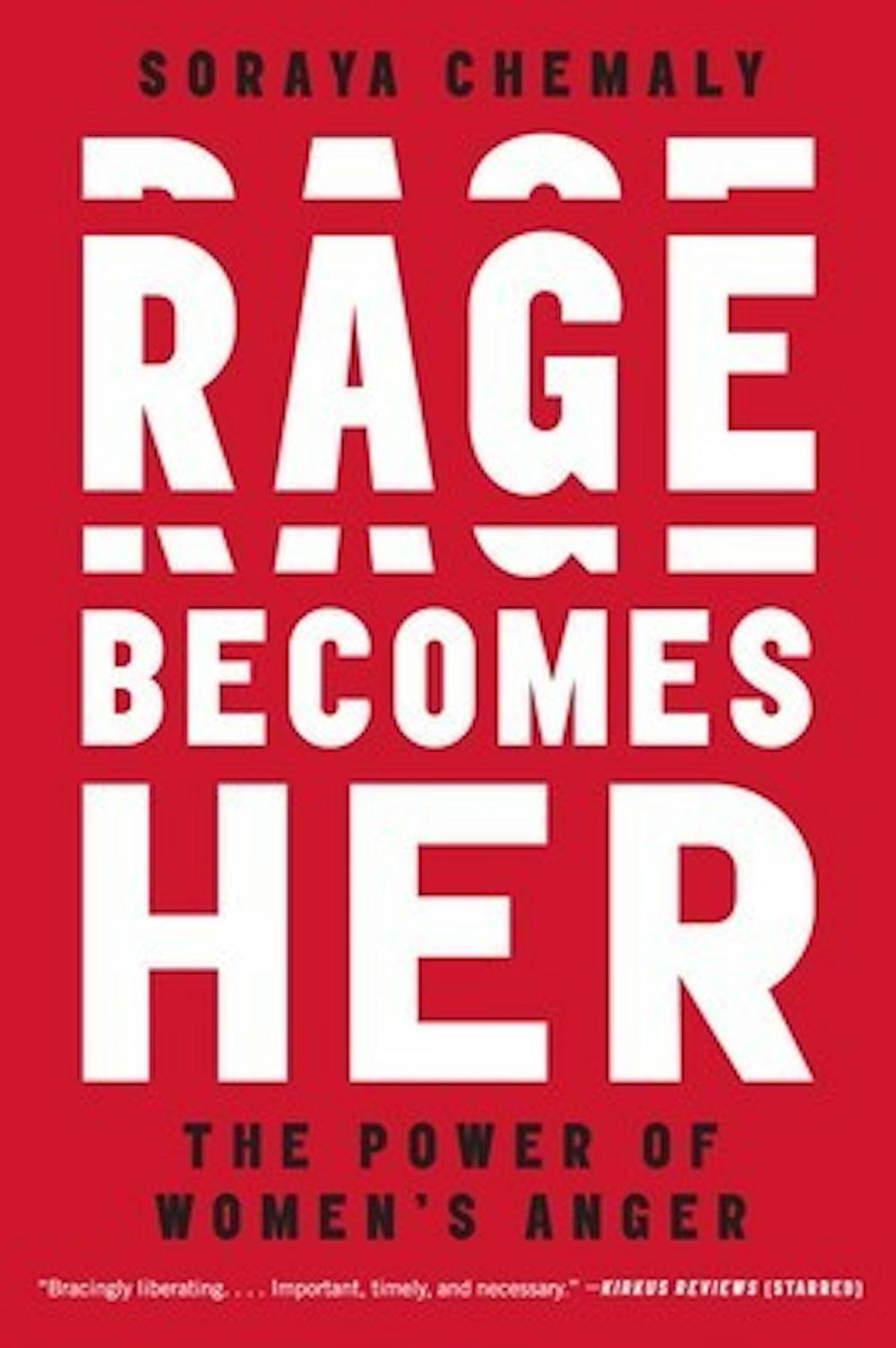Soraya Chemaly is sick of the women around her being exhausted. Chemaly began writing about and researching women’s rights full-time 10 years ago, when she would write two to three articles a week about gender and sexualized violence and their roles in inequality. She has been published in The Atlantic, The Nation and Time — just to name a few. Chemaly is now the director of the Women’s Media Center and continues to do research on and write about women’s issues. In her book “Rage Becomes Her: The Power of Women’s Anger,” which came out Sept. 11., Chemaly expounds on how women’s repressed rage creates harmful tendencies. Chemaly came to Charlottesville Dec. 5 to talk about her new book.
The New Dominion book talk was intimate, beginning with only eight women sitting in the back of the Bookshop, which later turned into a group of 14. Chemaly sat casually on the staircase leading up to the second floor of the shop. Without a microphone or anyone to facilitate the discussion, the book talk quickly turned into a conversation between Chemaly and the audience. Each audience member introduced themselves in the small room and explained why they came in the first place. Chemaly frequently asked questions to the small audience and the audience would respond with stories about being angry or frustrated with injustice. The theme of the night was to accept one’s inner rage and not bury it deeper than it already has been.
“It’s extremely hard to say the words, ‘I’m angry,’” Chemaly said to a crowd of women and one man. Chemaly went on to say that women are taught from a young age to bury their anger inside of themselves and because of this, during the adolescent years, “unexpressed rage is weaponized against girls.” Chemaly explained that consistently across cultures in developed countries, girls develop self-harming tendencies, eating disorders, anxiety and depression all as a result of suppressing their anger. The inability to express this rage without severe ramifications results in many women simply saying they are stressed out and making their problems self-centric, rather than using the words “I’m angry” to hold someone else accountable.
“I am sick and tired of all the women I know being sick and tired,” Chemaly said. And when a crowd member asked how women respond to those who do not listen to their problems, Chemaly said, “That’s why I wrote the book, so you could throw it at someone [who needs to read it.]”
“Rage Becomes Her” is split into four sections — infancy, adolescence, fertile years and motherhood — with each stage serving the purpose of showing how women must deal with the pressure society imposes and the results of gendering emotion from birth. Girls are expected to bury their anger, the book argues, while boys are expected to embrace aggression. Because of this lack of emotional competence, women must cope with both unexpressed rage and the consequences of sharing their opinions.
“When women describe their experiences their number one fear is that they will be met with mockery,” Chemaly said. “And their second fear is that they will be met with indifference.”
Chemaly does not want people to be unnecessarily enraged at all times — on the contrary, she wants people to be able to help themselves by realizing that anger is a result of something going wrong in your surroundings.
“Movements throughout history are rooted in anger and fueled by anger and frustration,” Chemaly said.
Through “Rage Becomes Her” and specifically a chapter on anger competence, Chemaly wants her audience to understand that all of us have anger, and coming to terms with that is paramount. And more than that, you should not let anger manifest inside your body and you must hold people accountable for their actions.
“Women are told to make, keep and nurture relationships, and when we are angry, we worry that we will destroy the relationship — when in reality, if you are angry, you are saying something is important to you,” Chemaly said at one point in her talk.





